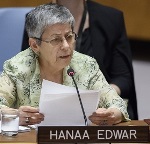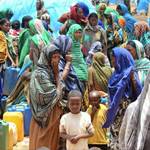Published on Wed, 2018-06-20 00:00
Despite the Czech Republic stagnating in the worldwide effort to bring about gender equality, the country’s government plans to cut funding for equality projects significantly in the coming years. That’s according to the Czech branch of the international NGO network, Social Watch. Eurostat data sets the country’s pay gap at more than 20 percent, while at the same time the difference between men and women being able to find employment lies at 15 percent. |
Published on Fri, 2018-06-15 14:54
If the International Monetary Fund (IMF) is to respond effectively in the years ahead to the challenges in a world in which both globalization and liberal democracy are increasingly under attack, it will need a different mindset from the modified neoliberalism that currently sets the parameters of its thinking. This is the assessment of Philip Alston, the Special Rapporteur on extreme poverty and human rights, in his latest report to the UN Human Rights Council, which begins its thirty-eighth regular session on Monday (18 June). |
|
Published on Thu, 2018-06-14 13:05
There are increasing warnings of an imminent new financial crisis, not only from the billionaire investor George Soros, but also from eminent economists associated with the Bank for International Settlements, the bank of central banks. The warnings come at a moment when there are signs of international capital flowing out of some emerging economies, including Turkey, Argentina and Indonesia. Some economists have been warning that the boom-bust cycle in capital flows to developing countries will cause disruption, when there is a turn from boom to bust. |
Published on Fri, 2018-06-08 14:12
Ms. Hanaa Edwar, Chairperson of Iraqi Al-Amal Association, participated at the UN Security Council Open Debate on the Protection of Civilians in Armed Conflicts that was held in New York, 22nd May 2018. Hanaa highlighted that civilians who have suffered must have access to justice and accountability. The Security Council Resolution in 2017 on Da’esh accountability, and the Joint Communique on the Reduction and Response to Sexual Violence in Armed Conflict signed in September 2016 are crucial documents and she urge to support their implementation. She said there must be accountability for all harm committed in Iraq by all parties to the conflict. Accountability should not be limited to some people and some types of violations. All civilians deserve redress for their suffering. This must be clearly linked to reconciliation efforts. |
Published on Fri, 2018-06-08 13:58
This year is set to be an important milestone in the arduous journey of climate migrants. The global community is now beginning to fathom the challenges of people displaced by events such as floods, storms and sea level rise that are partly fuelled by climate change. Natural disasters forced over 18 million people out of their homes in 135 countries just last year, according to a new global report released by Geneva-based Internal Displacement Monitoring Centre (IDMC). |
SUSCRIBE TO OUR NEWSLETTER






